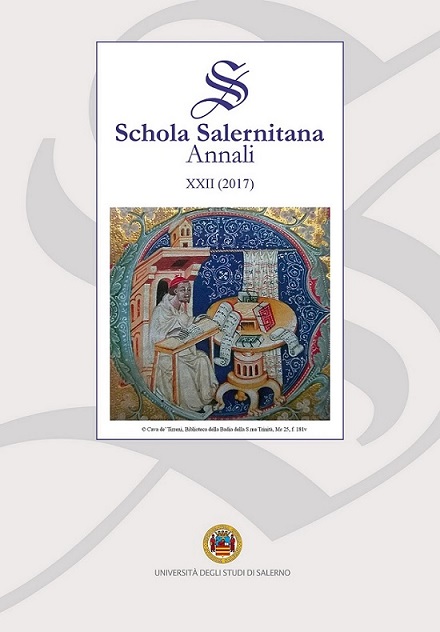Le pluralisme culturel: peuples et cultures
DOI :
https://doi.org/10.6092/1590-7937/5302Mots-clés :
Etnie, Popoli, Cristiani, Romani, Longobardi, Greci, Arabi, EbreiRésumé
The kingdom of Sicily sheltered different «peoples»: «Romans», Lombards, Greeks, Saracens, Jews. Each one was distinguished by its personal law, its language, its religion (or rite). Some Greeks and Arabs belonged to the king’s entourage. In Monte Cassino at the end of the 11th century, then in the palace of Palermo in the 12th century, philosophical and scientific Greek and Arabic texts were translated into Latin. Among the Christians, the Roman and Byzantine rites were admitted; but during the 13th century many Greeks lost their own culture.Téléchargements
Téléchargements
Publiée
Comment citer
Numéro
Rubrique
Licence
Gli Autori che pubblicano su questa rivista accettano le seguenti condizioni:
a. Mantengono i diritti sulla loro opera e cedono alla Rivista il diritto di prima pubblicazione, rilasciata con Licenza Creative Commons Attribuzione 4.0 Internazionale - CC BY 4.0 che permette "di riprodurre, distribuire, comunicare al pubblico, esporre in pubblico, rappresentare, eseguire e recitare l'opera", indicando la paternità intellettuale del contributo (citando correttamente l'autore e il titolo della rivista) e la prima pubblicazione sulla presente Rivista.
b. Possono aderire ad altri accordi di licenza non esclusiva per la distribuzione della versione dell'opera pubblicata (es. depositarla in un archivio istituzionale o pubblicarla in una monografia), a patto di indicare che la prima pubblicazione è avvenuta su questa Rivista.
c. Al momento della proposta di pubblicazione, sono tenuti a dichiarare che il contenuto e l’organizzazione dell’opera è originale e non compromette in alcun modo i diritti di terzi né gli obblighi connessi alla salvaguardia di diritti morali ed economici di altri autori o di altri aventi diritto, sia per testi, immagini, foto, tabelle sia per altre parti di cui il contributo può essere composto. L’Autore dichiara altresì di essere a conoscenza delle sanzioni previste dal codice penale e dalle leggi speciali per l’ipotesi di falsità in atti ed uso di atti falsi. Schola Salernitana - Annali è esente da qualsiasi responsabilità di qualsivoglia natura, civile, amministrativa o penale, e sarà dall'autore tenuta indenne da qualsiasi richiesta o rivendicazione da parte di terzi.





